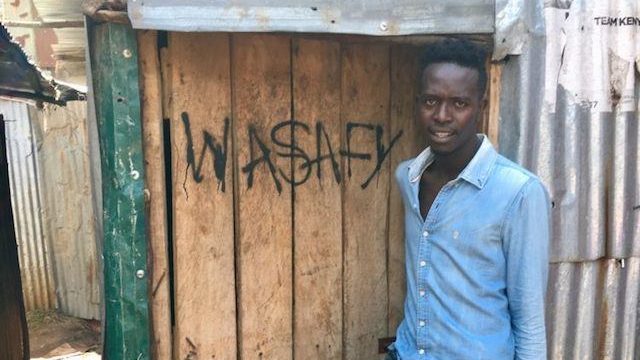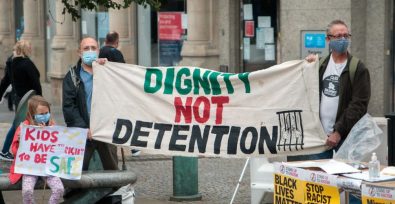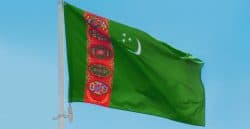Photo credit: Daily Maverick
Kenyan youth are being trafficked, falsely promised a better life and job opportunities abroad. Yet a grassroots group in Mathare, one of Kenya’s largest slums, is working to change that.
What makes this group special? They’re young men who are reformed criminals, many of them former human traffickers themselves.
Related Campaign: End sexual exploitation of children in Kenya.
They call themselves “Wasafy”, which means “clean” in KiSwahili, and they meet each week they pull together money and support for young men so that they have financial alternatives and aren’t duped by traffickers.
Daily Maverick sat in on one of their community meetings:
Today, in Wasafy’s headquarters, young mothers with their babies, unemployed men, staff from the trafficking organisation HAART (the only anti-trafficking organisation in Kenya) and the Chief of Mathare have gathered to share their stories of trafficking.
“Ninety percent of us are either potential trafficking victims, or traffickers,” says Auma, speaking of the high level of desperation and unemployment in the community.
His core group of 22 young men are reformed criminals, he explains, who were lured into crime by hunger and poverty. Now, after the chief of the community donated land to Wasafy, they work with organisations such as HAART to provide information to potential victims. One of their mottos is “Slavery did not end, it evolved”.
But when Auma says “we cannot eat information” his comment emphasises the fact that this alone is not enough – hence the formation of Wasafy to educate but also empower through financial alternatives.
Kevin Auma, one of the leaders of Wasafy, says that each week group members donate 50 Kenyan Shillings. “This money is then used to organise vocational trainings, talks, or even small grants to start our own businesses.”
Patrick Migiro, a Human Rights Officer at the Kenya National Commission on Human Rights, added that Wasafy is especially well-placed to educate communities vulnerable to traffickers.
“When there are no gatekeepers, organisations such as these have a strong influence over youth, especially considering Wasafy’s members previous engagement in illegal activities,” he said.
“As reformists, they command a section in society through which they can get their messages to vulnerable groups of society.”
Take Action: Chip in to support our work against modern slavery.







Freedom United is interested in hearing from our community and welcomes relevant, informed comments, advice, and insights that advance the conversation around our campaigns and advocacy. We value inclusivity and respect within our community. To be approved, your comments should be civil.